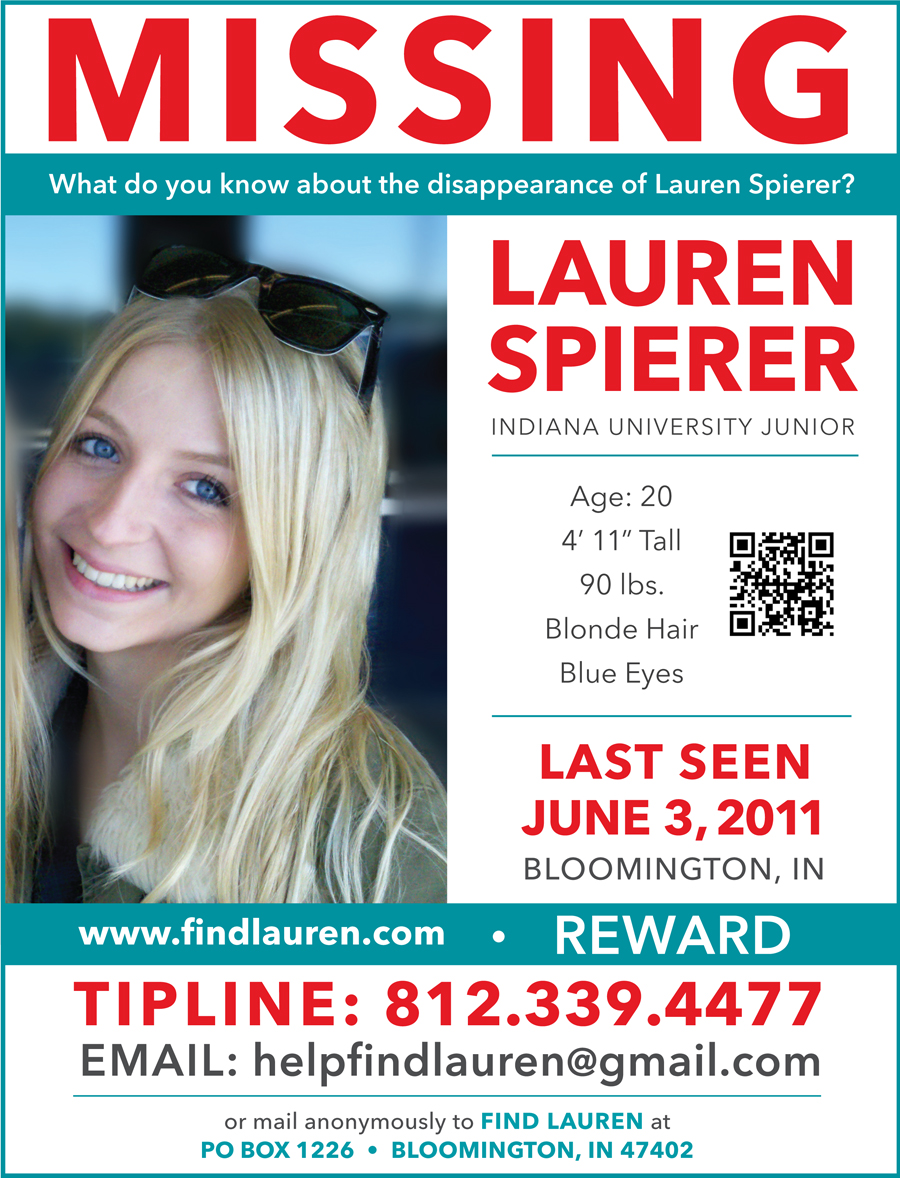Nit-Picking Nit-Writ
 Thursday, August 16, 2012 at 10:54AM
Thursday, August 16, 2012 at 10:54AM This article will focus on the writ of prohibition filed by George Zimmerman’s defense attorneys, but before I do that, I’ve got to get something off my chest. It’s something I haven’t read much about elsewhere and it’s been bugging me in subtle ways for several months. As far as I’m concerned, it gets to the heart of the matter and why any motion to dismiss (in lieu of SYG) may be problematic for the defense.
I think most people will agree that Zimmerman has given several conflicting accounts of what transpired on February 26, the night Trayvon Martin died by a perfectly placed gunshot wound to the chest.
 While his imagination has run wild, there’s one part of his stories that has remained consistent. He prefaces each and every 911/non-emergency call with, “We’ve had some break-ins in my neighborhood…” or words to that effect. Why does he start each one with that statement? Is it an excuse for what may transpire before the police arrive? Cover your butt? Let me tell you why I did it, in other words, by setting up his version du jour. In my opinion, it lays down a foundation as either of two things. Or both.
While his imagination has run wild, there’s one part of his stories that has remained consistent. He prefaces each and every 911/non-emergency call with, “We’ve had some break-ins in my neighborhood…” or words to that effect. Why does he start each one with that statement? Is it an excuse for what may transpire before the police arrive? Cover your butt? Let me tell you why I did it, in other words, by setting up his version du jour. In my opinion, it lays down a foundation as either of two things. Or both.
- He criminally profiled Trayvon, which is what the State claims, and he knows it.
- There was premeditation. By premeditation, I mean, as soon as he spotted the boy, his mind clicked into some sort of mutated high-gear attack mode and that’s when he began to stalk his prey with a vengeance. They always get away. NOT THIS TIME. In my book, it’s malice prepense, or malice aforethought — premeditation, pure and simple.
Whether he intended to shoot Trayvon or not, he began a deadly game of cat and mouse. A killer cat pseudo-cop. Have gun, will shoot. And he did just that.
§
If you’ve ever seen video footage of babies falling out of chairs, they always look around. If someone is there, they immediately begin to wail and wait for mommy or someone else to run over and comfort them. If no one is there, they shrug it off and continue going about their business, climbing back up for more fun. Of course, I mean this only when there is no real harm done. It’s human nature and we learn at a very early age how to gain sympathy. In George Zimmerman’s case, he’s lived this way all his life. Someone has always been around to comfort him, and he’s forever gotten away with everything. He reminds me so much of Casey Anthony in the sense that her mother, Cindy, let her get away with murder. Don’t ask me if I mean that figuratively or literally.
Zimmerman handily dismissed the first judge, Jessica Recksiedler, and he’s working on another. To be fair, I believe the motion to remove Recksiedler was Mark O’Mara’s idea, and he seemed to be careful when he constructed the recusal motion, just in case he needed to do it again.
Uh oh, he did it again.
This time, it was due to the “scorching” language the new judge, Kenneth R. Lester, Jr., wrote in an order denying bond after he discovered Zimmerman and his wife lied in court about a large sum of money they had in an account she only acknowledged existed. She denied knowing how much was in it when, in fact, she knew it was more than $130,000. There was also the issue of a tucked away passport they both failed to mention but openly discussed in coded jail house phone calls to each other prior to the initial bond hearing.
Oh my, judges do not like to be lied to, no matter how many inane explanations a defense attorney can conjure up.
Granted, the judge’s wording was quite tough, but did it reach the plateau that separates a legal reprimand from a personal one? It depends on which side of the fence you live on. Actually, it depends on what benches the three appellate judges sit on. That would be judges C. Alan Lawson, Jay P. Cohen and Kerry I. Evander.
After Lester revoked Zimmerman’s bond, the defense filed a new motion to set bond. Of course, the State objected, but in the end, it was granted to the tune of $1,000,000. In his ORDER SETTING BAIL, the judge noted that:
… the Defendant did not offer any explanation of or justification for his deception that was subject to cross examination… As noted, the Defendant spent a substantial portion of the hearing presenting evidence relating to self-defense in an effort to counter the State’s case because, in the initial order, the Court characterized the State’s case as “strong.” Notably, at the initial bond hearing, this Court had only limited evidence; to that point, the State showed the Defendant had shot and killed Trayvon Martin. There was other evidence presented through the probable cause affidavit and the testimony of Dale Gilbreath, an investigator with the State Attorney’s Office, that the Defendant’s actions were imminently dangerous to another and that he acted with a depraved mind regardless of human life. The Defendant certainly indicated through cross-examination that he acted in self-defense, but he put forward no evidence of such. As a consequence, this Court found as a preliminary matter that the evidence against the Defendant was “strong.”
The order further stated that:
Since the June 29, 2012 hearing addressed whether to reinstate bond was not an Arthur hearing, the presentation of evidence attacking the State’s case is of limited relevance at this stage of the proceedings… The actual questions before this Court at this time are: is the Defendant entitled to bail when he presents false testimony at a prior bond hearing and what recourse there is when the Defendant has shown blatant disregard for the judicial sysyem.
In other words, the judge maintained throughout that the reason he stated the evidence against the defendant was strong was because the defense offered up nothing substantial to prove otherwise up to that point, and since the defendant lied to the court, was granting bail the proper decision? The argument that Zimmerman claims in his PETITION FOR WRIT OF PROHIBITION isn’t worth the paper it’s printed on:
There was little evidence regarding the strength of the State’s case at the initial bond hearing other than the bare-bones probable cause affidavit… and the testimony of State Attorney Investigator Dale Gilbreath, a witness called by the defense… Gilbreath acknowledged that the State had no evidence to contradict the conclusion that Trayvon Martin was the aggressor and threw the first punch and no evidence to contest that Mr. Zimmerman was headed back to his car when Mr. Martin attacked him.
Herein lays the problem, whether you see it or not. While the writ of prohibition does make mention of the judge’s strong language, the rest of it is filled with smoke and mirrors. Why, you may ask? Because it doesn’t stick to the matter at hand, as I clearly pointed out above. The writ reads more like a motion for dismissal.
Granted, the judge did make strong statements, but the defense virtually ignored the reasons why. The fact remains, George lied, whether by remaining silent as his wife directly lied to the court, or by proxy. By that, I mean he authorized his wife to lie. Sadly, the writ includes the issue over his wife being charged with perjury. Zimmerman and O’Mara blame it on the judge, who mentioned it in his bond revocation order. Well, she did lie! She did break the law! Is that the judges’s fault? No, but Team Zimmerman thinks so.
Getting back to the June 29 bond hearing, O’Mara deviates from the truth in his writ:
On June 29, 2012 a hearing was held on Mr. Zimmerman’s Motion to Set Reasonable Bond. At this hearing, Mr, Zimmerman presented evidence… in support of his claim of self-defense. This tidal wave of evidence…
A tidal wave of evidence? In his later Order Setting Bail, Judge Lester noted that:
Argument by counsel is not evidence. See e.g. Wheeler v. State, 311 So. 2d 713 (Fla 4th DCA 1975) (noting that counsel’s opening statement is not evidence).
In plain English, it means that this tidal wave of evidence was nothing more than dirty bath water going down the drain. To clarify, the evidence was presented by O’Mara that day, not by the defendant. Sadly, the defense was aware of that, too, before it wrote the writ.
ON COURT ETIQUETTE AND ETYMOLOGY
The writ of prohibition states that:
The court chose language in its July 5, 2012 Order to describe the Defendant in ways that reflect the court’s opinion of Mr. Zimmerman’s character as much as his conduct. In its Order, the trial court said, “[u]nder any definition, the Defendant has flouted the system.”
Ouch! Poor Zimmerman threw a pity party over it because:
“Flouted” is defined at Merriam-Webster.com as “to treat with contemptuous disregard; to indulge in scornful behavior.”
In Zimmerman’s case, the court was correct in that assessment. He did flout the system. It continues…
The court went on to say that, “[t]he Defendant has tried to manipulate the system when he has been presented the opportunity to do so”… and again that “… it appears to this Court that the Defendant is manipulating the system to his own benefit”… The court also accused Mr. Zimmerman of showing “blatant disregard for the judicial system.”
The strange thing about the above statement is that every quote by the court is true. Interestingly, one of the defense team’s only ways to counter the court’s language is to camouflage it with claims of what transpired the night of February 26, which really has no bearing on the writ. Meanwhile, the defense laments that:
The court completely ignored Mr. Zimmerman’s voluntary disclosure of the alleged wrongdoing and failed to acknowledge Mr. Zimmerman’s surrender of those donated funds to his lawyer…
The problem is that Zimmerman was caught with his grubby hands in the cookie jar and something tells me he’s always been a sneaky little bastard, pardon my language, who immediately apologizes when he gets caught. See? All better. This is the type of creep who will admit to nothing if he gets away with it, and the more and more we get to know him, the more we recognize it as one of his strongest traits.
I can go on and on citing the examples the defense used in attacking the judge. I can write about harsh language the judge used in his bail order, but consider what he also wrote:
The State notes that his stories changed [with] each retelling, but on the surface he should be deemed to have been cooperative. However, he clearly understood that he was being investigated for committing a homicide and, while he believes that he was justified in his actions, there has been nothing presented which indicates that he was misled into believing that he would not be charged with a crime. Contrary to being betrayed, the Defendant received normal, reasonable treatment and was granted reasonable bail.
That sounds fair to me, but Zimmerman disagrees:
Of particular relevance in the instant case is the legitimacy of Mr. Zimmerman’s belief that the trial court has prejudged his guilt regarding the alleged (by the trial Judge) violation of Florida Statute Section 903.035(3), and how it may carry over to guilt in the underlying second degree murder case.
The way I look at this is no different from any other scolding. Just like parents disciplining their child, they get over it and move on. My God, if parents held grudges, how could they ever treat their children fairly? Even O’Mara admitted when questioned during his writ of prohibition news conference that Judge Lester is a professional and fair. Basically, he contradicted his writ.
I am convinced that this judge can proceed from here and fairly preside over the entire George Zimmerman case. In his ORDER DISMISSING DEFENDANT’S VERIFIED MOTION TO DISQUALIFY TRIAL JUDGE, Lester made it clear that the DEFENDANT’S VERIFIED MOTION TO DISQUALIFY TRIAL JUDGE was legally insufficient. He further stated that:
The Defendant moved to recuse Judge Recksiedler on the basis of Fla. R. Jud. Admin. 2.330(d)(2), which mandates recusal when a judge is related to an interested party… [The] Defendant also argued language associated with Fla. R. Jud. Admin. 2330(d)(1). However, in an abundance of caution and based on the “totality of the circumstances,” she recused herself. This would indicate that her recusal was, in fact, based upon Fla. R. Jud. Admin. 2.330(d)(1), making this a successive motion under subsection (g) of that rule. Should that be determined, this court is prepared to rule on the facts alleged in support of the motion.
What that means is simple. The lower court is ready to show the higher court what this writ may be all about. Uh huh. Judge shopping.
 Dave Knechel | in
Dave Knechel | in  Angela Corey,
Angela Corey,  Bernie De la Rionda,
Bernie De la Rionda,  Dave Knechel,
Dave Knechel,  David B. Knechel,
David B. Knechel,  David Knechel,
David Knechel,  Donald West,
Donald West,  George Zimmerman,
George Zimmerman,  Judge Jessica Recksiedler,
Judge Jessica Recksiedler,  Judge Kenneth R. Lester, Jr.,
Judge Kenneth R. Lester, Jr.,  Marinade Dave,
Marinade Dave,  Marinade Dave Knechel,
Marinade Dave Knechel,  Mark O'Mara,
Mark O'Mara,  Seminole County,
Seminole County,  Seminole County Courthouse,
Seminole County Courthouse,  Shellie Zimmerman,
Shellie Zimmerman,  Slimm v. Zimm,
Slimm v. Zimm,  Trayvon Martin,
Trayvon Martin,  Writ of Prohibition,
Writ of Prohibition,  Zimm v. Slimm,
Zimm v. Slimm,  marinadedave | |
marinadedave | |  1 Reference
1 Reference 











 LEGAL NOTICE
©David B. Knechel. All Rights Reserved. No portion of this site can be reproduced in it's entirety or in part without expressed written permission by the owner/administrator of this site in accordance with the Digital Millennium Copyright Act. Section 512(c)(3) of the U.S. Copyright Act, 17 U.S.C. §512(c)(3). The charges against defendants are mere accusations and the subjects are presumed innocent until found guilty in a court of law.
LEGAL NOTICE
©David B. Knechel. All Rights Reserved. No portion of this site can be reproduced in it's entirety or in part without expressed written permission by the owner/administrator of this site in accordance with the Digital Millennium Copyright Act. Section 512(c)(3) of the U.S. Copyright Act, 17 U.S.C. §512(c)(3). The charges against defendants are mere accusations and the subjects are presumed innocent until found guilty in a court of law.
